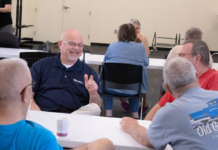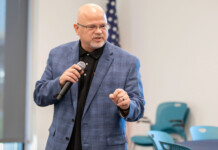
Four out of five American youth believe that that the U.S. should better educate young people before they can vote and enlist in the military, according to a new survey by the American Red Cross.
The national survey, taken in February, also reveals that only one in five American youth is familiar with the Geneva Conventions, which set rules that protect civilians in conflict zones, allow safe passage for the sick and wounded and promote humanitarian treatment of prisoners.
The survey findings are being announced by the Red Cross as the nation begins to commemorate the 150th anniversary of the Civil War, which began in April, 1861. The Civil War marked the first adoption of codified rules of international humanitarian law. In 1863, President Lincoln commissioned a code of war (known as the Lieber Code) as part of a commitment to uphold American values and principles.
With multiple conflicts around the world and civil wars in places such as North Africa, these laws are just as relevant today as they were 150 years ago.
The new Red Cross survey also demonstrates the need for further education, especially since nearly 7 in 10 youth say they have a relative or a close friend who is a veteran of the armed forces and these rules of conduct protect their loved ones in time of war. Surprisingly, the survey shows that almost half of American youth have never even heard of the Geneva Conventions or international humanitarian law.
“The Geneva Conventions are at the foundation of the work of the Red Cross and are at the core of international humanitarian law. These rules have been adopted by all governments in order to reduce suffering in war,” says Bonnie McElveen-Hunter, Chairman of the American Red Cross. “With so many conflicts throughout the world, we strongly encourage high schools across the United States to incorporate lessons in the classroom to better inform students on these timely issues.”
The Red Cross commissioned two surveys, one of younger Americans between 12 and 17 and another of adults, and the results showed that, in many cases, youth are more inclined to support illegal actions in times of war than adults:
• Nearly 3/5 youth (59 percent) – compared to 51 percent of adults – believe there are times when it is acceptable to torture the enemy.
• More than 2/5 youth (41 percent) believe there are times when it is acceptable for the enemy to torture captured American prisoners, while only 30 percent of adults agree.
• More than half of youth (56 percent) believe that there are times when it is acceptable to kill enemy prisoners in retaliation if the enemy has been killing American prisoners, while only 29 percent of adults agree.
The Geneva Conventions are vital to protecting people in the military and civilians during times of war, and it is critical that everyone understand their need and their importance. It is clear that while rules to limit suffering in warfare are as important and relevant today, they are not widely understood. As our nation marks the 150th anniversary of the beginning of the American Civil War, we must make a renewed commitment to these principles that guide conduct during wars.
The global Red Cross and Red Crescent network and the Geneva Conventions had their start after Henry Dunant witnessed the devastating consequences of war at a battlefield in Italy. In the aftermath of that battle, Dunant argued successfully for the creation of a civilian relief corps to respond to human suffering during conflict, and for rules to set limits on how war is waged.
Inspired in part by her work in the Civil War, Clara Barton would later found the American Red Cross and also advocate for the U.S. ratification of the first Geneva Convention.
The Red Cross has developed the “Exploring Humanitarian Law” curriculum which can be incorporated into social studies and history classes. More than 1200 schools in all 50 states already use these resources. In the last two years, the Grand Canyon Chapter has provided training and materials to nearly 70 educators, representing five Arizona counties and 27 different schools.
“The American Red Cross curriculum on humanitarian law can tie the history of the Civil War with conflicts occurring today across the world, and show the importance of basic rules through time that protect the rights of combatants and citizens,” said Dan Curtiss, Grand Canyon Chapter Emergency Services Director. “The Red Cross urges teachers in schools throughout our community and our state to include this curriculum as part of their history and social studies courses, especially as we mark the anniversary of the Civil War.”
More information on the program can be found at www.redcross.org/ehl.
Details for Surveys:
(1) Telephone survey of 1,019 U.S. adults 18 years and older on February 24-27, 2011 conducted by ORC International. Margin of error is +/- 3.1 percentage points at the 95% confidence level. (2) Telephone survey of 502 U.S. youth 12-17 years old on February 24-27, 2011 conducted by ORC International. Margin of error is +/- 4.4 percentage points at the 95% confidence level.
File photo















